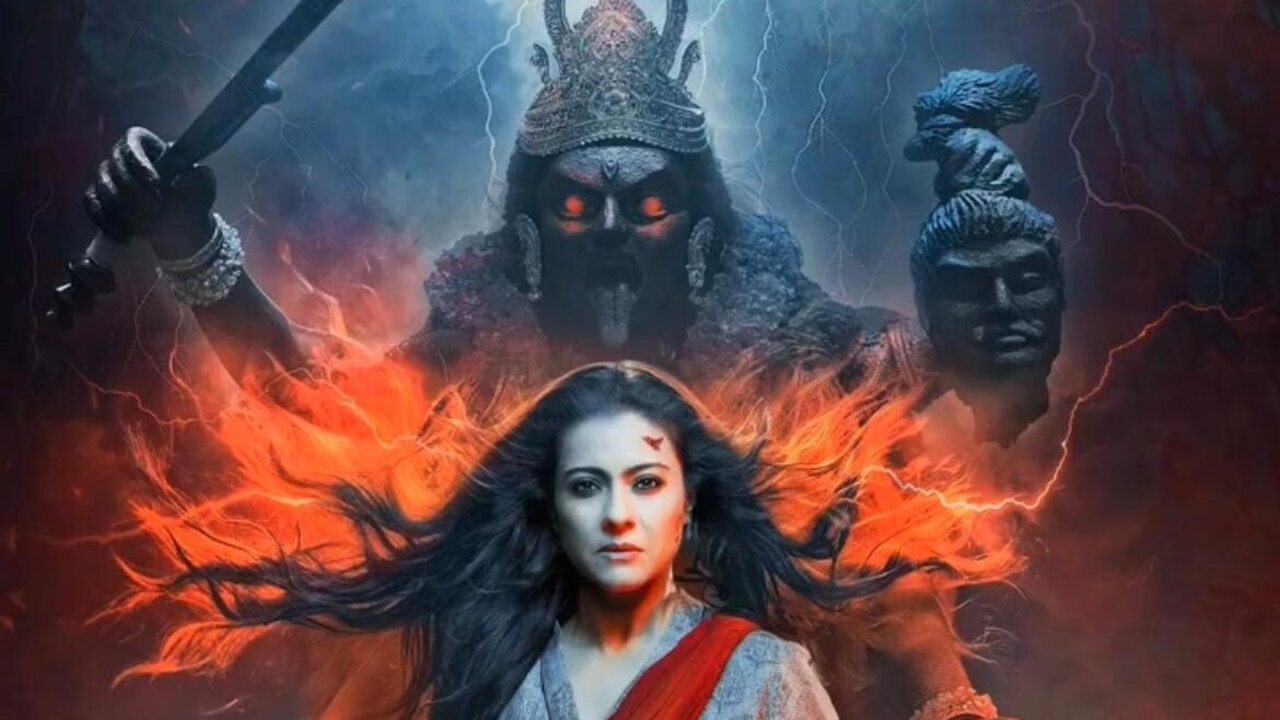
It's been 26 years since Kajol and Ajay Devgn got married. The couple might have gone through their share of troubles and joys, but on social media platforms, they often - like most celebrities - end up being the target of meme-makers and troll army. I remember hearing scandalous gossip after Kajol, who appeared in The Kapil Sharma Show with her husband to promote Shivaay, confessed that she was not informed about Devgn's kissing scene. Jokes have been made about Devgn's so-called tobacco-eating habits due to his involvement in Vimal commercials (bolo zubaan kesari). What's more, a short video of Devgn's demeanor, first in front of Tabu and then Kajol, was recently circulated online. Hence, one can say that with Maa, which has Kajol in the lead role and Devgn as one of the producers, the couple is telling the trolls, the media, and the meme-makers that everything is just perfect in the Devgn family. In Maa, Kajol steps into the shoes of Ambika, who is portrayed as a benevolent mummy. She never raises her hand against her daughter, Shweta (Kherin Sharma), or is seen yelling at her. Shweta never asks for expensive gadgets or clothes, so there is no friction between her and her mother over the purchase of material goods either. The only "unreasonable demand" Shweta puts forward is the one in which she requests to be taken to her father's (Indraneil Sengupta) village, Chandarpur. Well, Ambika shoots down this request with a soft voice and a gentle tone. Through this film, Kajol is essentially awarded the title of 'Greatest Mother of All Time,' while Devgn, by supporting her as a producer, portrays himself as a devoted husband who adores his wife. He's being a good spouse. The alternate title of Maa could be The Divine Devgns.
But Devgn doesn't merely adore Kajol. He has thrown his money on a film that treats her as a goddess. Maa could very well be a late anniversary gift. By naming Kajol's character Ambika, the movie quickly establishes the flow of Goddess Kali's blessing. The other mothers simply exist to look helpless and weary. They apparently don't have that Great Mommy Strength, which Maa mentions through the story of Raktabija vs Kali. Nonetheless, the story (Ajit Jagtap, Aamil Keeyan Khan, and Saiwyn Quadras are the writers) is somewhat decent. It starts with the ritual sacrifice of a young girl and transitions to the abduction of adolescent girls at the onset of menstruation. The movie attacks patriarchy and the only time the images and the concept stick together is when demon girls strike Ambika under the influence of a male forest demon. Translation: More often than not, it's the women who fight with each other to defend the patriarchal system. Given all the you-go-girl energy, it is no wonder Vishal Furia was hired to direct the movie. Furia has been criticizing man-made rules since Lapachhapi; he locates horror in male supremacy. His intentions are fine, and if Furia had a feeling for aesthetics, his films could have been impressive. Compared to other movies in his filmography, Maa comes across as Furia's most coherent outing. Old habits, though, die hard, and the problem with Furia is that he still sees scenes as "beautiful stills." One can pause his films, take snapshots, and upload pictures online to praise cinematography (if pretty pictures are your idea of cinematography).
Furia is always so busy making his frames "aesthetically pleasing" that he pays no attention to either the execution or the script. Consider Chhorii 2's ending. Sakshi tells Daasi Maa that to defeat the monster, she needs to return to the well. The implication is that patriarchal values persist, and women still have a long battle ahead to achieve equal footing in society. However, what you see on the screen looks half-baked, clumsy, unintentionally funny. In Maa, the characters are placed in creepy yet visually appealing settings, but they are reduced to mere functions within the script. Furia works with pawns, and his images are merely decorative. In his Priority List, ideas come first, photographs come second, and execution occupies the third position. That third aspect is often treated as an optional element of filmmaking, which is why Furia's films can feel incoherent and ungainly. The final battle between the goddess and the demon in Maa resembles a poorly shot Marvel movie. There is another issue with Furia's brand of "horror as social service." He recycles the same old genre tricks (spooky faces appearing suddenly, blankets being pulled by an invisible entity), which ultimately undermine his good intentions and expose his lack of creativity. So, while Kajol is crowned a powerful woman, a great mother, and a good wife, Furia gets almost nothing. Before smashing the patriarchy, the director first needs to develop a potent voice.
Final Score- [2.5/10]
Reviewed by - Vikas Yadav
Follow @vikasonorous on Twitter
Publisher at Midgard Times
Get all latest content delivered to your email a few times a month.
Bringing Pop Culture News from Every Realm, Get All the Latest Movie, TV News, Reviews & Trailers
Got Any questions? Drop an email to [email protected]